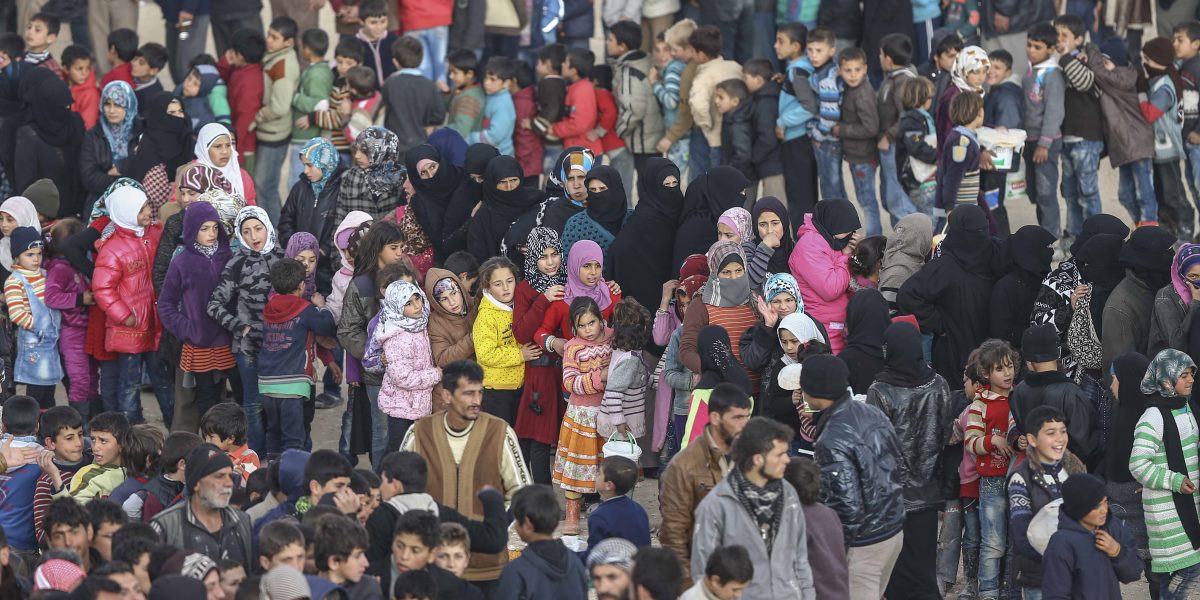
One Way Ticket for Aleppo
Bullying Turkey through the proxy of regime forces and PYD militants won't make Ankara adopt an isolationist stance either. Integrating 3 million Sunni Arabs, after all, will only strengthen Turkey's ties with the Middle East.
Share
The battle for Aleppo will determine the future of the Middle East. As 17 countries sought to jumpstart the Geneva peace talks, which the United Nations suspended earlier this month, the people of Aleppo found themselves under heavy bombardment and ground attacks. Seeking to eliminate the moderate opposition, an alliance of the Assad regime, Iran, Russia and the Democratic Union Party (PYD) continues to deal deadly blows to the revolutionaries as the Obama administration stands idly by.In an effort to deter challenges to Russia's war against the moderates, Prime Minister Dmitri Medvedev said last week that Gulf nations would risk starting a new world war by deploying ground forces to Syria. Meanwhile, the Russian-led Collective Security Treaty Organization stated that they would be willing to consider Syria for membership if the Assad regime were to apply.
Let's ignore the harsh rhetoric for a second and focus on the most important question: Who is Russia threatening with a new world war? Provided that Washington and Moscow have reached an unofficial agreement over Syria, it would appear that the Kremlin wants to prevent Turkey and Saudi Arabia from extending additional support to the moderate rebels - in the form of putting boots on the ground or creating a safe zone in northern Syria.
Russia's tough talk, furthermore, is intended to keep the United States and NATO on the sidelines. Having watched the Obama administration do a 180 on Washington's support for the moderate rebels, the Kremlin now wants to sideline Turkey and Saudi Arabia in the negotiating table.
Obviously, another goal is to deter Turkish involvement in the Syrian civil war by strong-arming NATO into explicitly refusing to stand with Turkey in case of border skirmishes. In other words, Russia wants to hear NATO leaders tell the government that the mutual-defense clause exclusively covers attacks against Turkish soil.
Ultimately, Russia would like to cut the supply route between Turkey and the moderate rebels - which means that Ankara has no reason to believe a recent statement by the PYD leadership that their forces won't cross the Euphrates without U.S. support. If and when the opportunity presents itself, the PYD militants, along with regime troops, will move to seize control of the Turkish-Syrian border and leave Turkey alone with up to 4 million Syrian refugees.
To make matters worse, NATO has agreed to send ships to the Aegean Sea to stem the influx of refugees to Europe at a time when hundreds of thousands of civilians are escaping a Russian-backed siege on Aleppo. Although the organization's most recent steps take Turkey's cooperation with the European Union to the next level, they also seek to prevent the government from pressuring the international community, including European nations, into sharing the burden of the Syrian civil war.
By forcing the moderate rebels to admit defeat, the United States and Russia are paving the way for a region-wide crisis. Their current strategy not only compels the moderates to choose between guerrilla warfare and joining al-Qaida but also empowers subnational groups such as various tribes and sects to challenge dissolving nation-states. To be clear, Russia, the Assad regime, Iran and the PYD won't solve any problems by subjecting millions to forced migration.
Whether or not Geneva-III yields any results, it remains impossible for Syria to have a functioning government by alienating the Sunni community. Bullying Turkey through the proxy of regime forces and PYD militants won't make Ankara adopt an isolationist stance either. Integrating 3 million Sunni Arabs, after all, will only strengthen Turkey's ties with the Middle East.
[Daily Sabah, February 15, 2016]
Tags »
Related Articles








